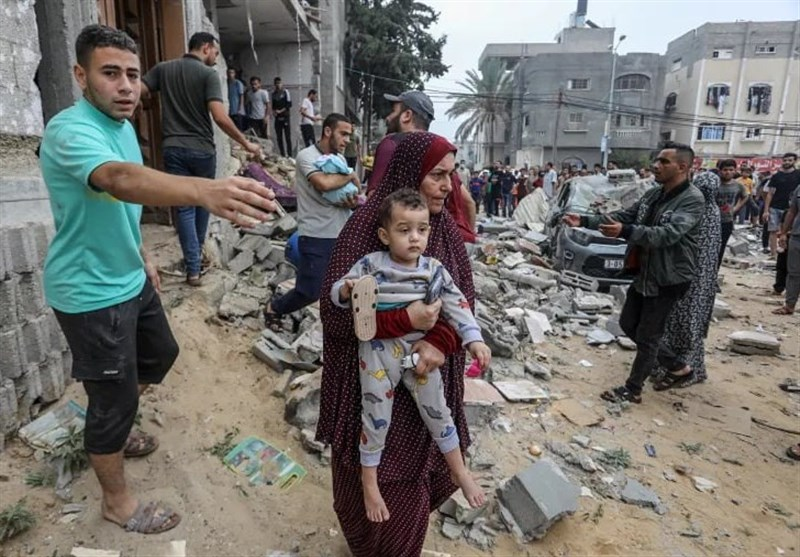A Call for Peace Amidst Ongoing Tragedy
Pope Leo XIV has once again urged an immediate end to the violence in Gaza, emphasizing the need for a peaceful resolution to the ongoing conflict. His words resonate deeply in a world that has witnessed the suffering of the people in Gaza firsthand. For those following the news, it’s difficult not to feel overwhelmed by grief, anger, and a sense of helplessness. However, there is strength in understanding what is happening, why it matters, and how to maintain hope and agency even when the news seems catastrophic.
The Pope’s recent call for a ceasefire comes at a time of extreme crisis. Reports indicate that dozens of Palestinians were killed while waiting in line for food aid at the Zikim crossing. Witnesses described tanks and gunfire trapping families for hours. Ehab Al-Zei, who was waiting for flour, shared his harrowing experience: “Tanks surrounded us and trapped us as gunshots and strikes rained down. We were trapped for two hours.” He added, “I will never go back again. Let us die of hunger, it’s better.” These tragic events highlight the dire situation in Gaza, where over 58,800 Palestinians have been killed since the war began, with many of them being civilians trying to access life-saving assistance.
The Controversy Over Humanitarian Aid Distribution
This latest tragedy is part of a larger controversy surrounding the distribution of humanitarian aid. The recently established Gaza Humanitarian Foundation (GHF), funded by the US and Israel, has taken a leading role in aid distribution, replacing the long-standing UN-run system. This change has drawn criticism from over 170 NGOs and relief groups, who argue that the GHF’s militarized, fenced facilities push civilians into crowded, dangerous areas. A senior UN aid official in Gaza called the situation “weaponized hunger,” describing it as forced displacement and a death sentence for those trying to survive.
According to UN reports, over 500 Palestinians have been killed while seeking aid at these sites since late May. International humanitarian law, which governs the laws of war, mandates that all warring parties must distinguish between combatants and non-combatants. It prohibits collective punishment, forced displacement, and targeting of aid. Human rights experts emphasize that deliberately attacking civilians or imposing collective punishment can never be justified. Israel, as the occupying power, is legally obligated to ensure that the basic needs of the population, such as access to food and medicine, are met. These principles are not abstract legal concepts; they are life and death for millions.
The Pope’s Message of Solidarity and Compassion
The tone of Pope Leo’s message is remarkable not only for its moral clarity but also for its generosity. Following the horrific attack on Gaza’s sole Catholic church, during which three people were killed and ten injured, the Pope identified the victims and expressed his “deep sorrow.” He spoke of his closeness to their families and all the parishioners, calling upon the world to observe humanitarian law and respect the obligation to protect civilians. He also emphasized the prohibition of collective punishment, indiscriminate use of force, and the forced displacement of populations.
His message to Middle Eastern Christians—“You are in the heart of the pope and of the whole Church. Thank you for your witness of faith”—reminds us that solidarity and compassion can bridge even the deepest divides. In times of crisis, these values become more important than ever.
Taking Action and Caring for Yourself
For those watching from afar, the experience of helplessness can be overwhelming. However, there are positive ways to engage, offer support, and take care of your own well-being while staying informed. Supporting organizations such as the International Rescue Committee, AFSC, Oxfam, and UNICEF can make a significant difference. These groups provide aid, advocate for safe humanitarian access, and offer ways for people to contribute through donations, sharing Palestinian voices, or engaging in advocacy for a sustainable ceasefire.
Experts recommend setting boundaries on news consumption, such as limiting updates to once a day or silencing notifications when needed. Focusing on what you can control, like donating to reputable aid groups or participating in local peace dialogues, can help maintain a sense of purpose. Self-care is not selfish; it is essential for building the strength needed to help others. Reaching out to friends, discussing feelings, and seeking help are signs of strength, not weakness.
Pope Leo’s invitation—“We need to dialogue and abandon weapons”—is a call to action for all of us. In a world that can turn violent without end, every act of compassion, every effort to uphold humanitarian law, and every move toward peace counts. Your voice, your heart, and your support from afar can bring hope to those who need it most.







